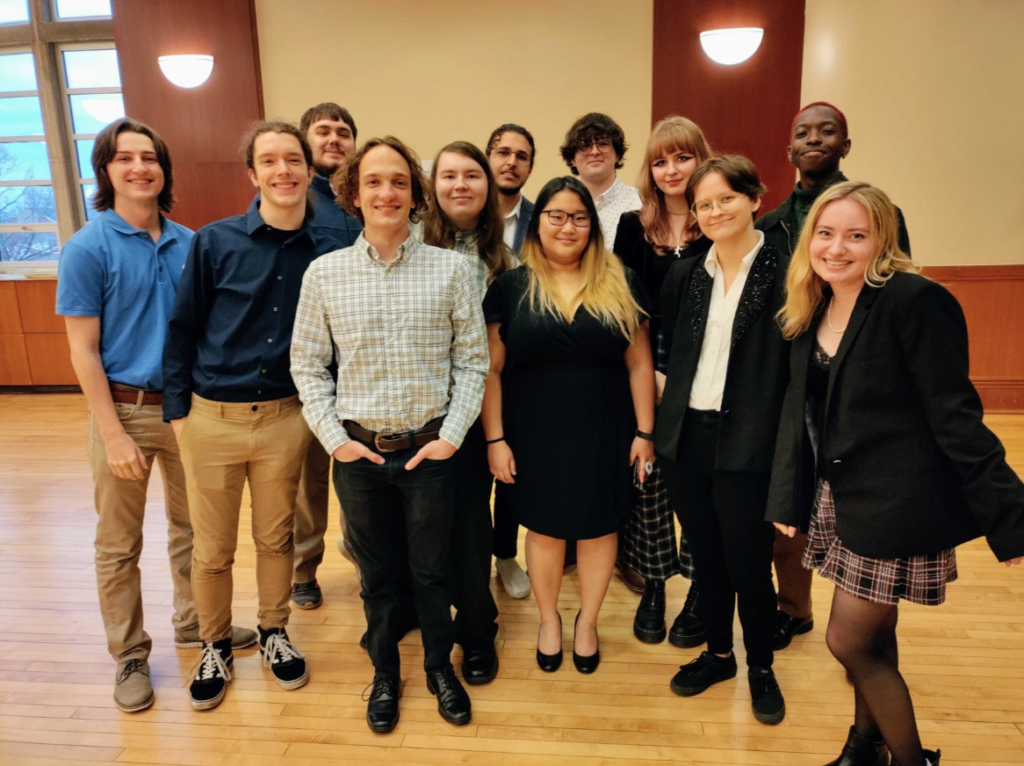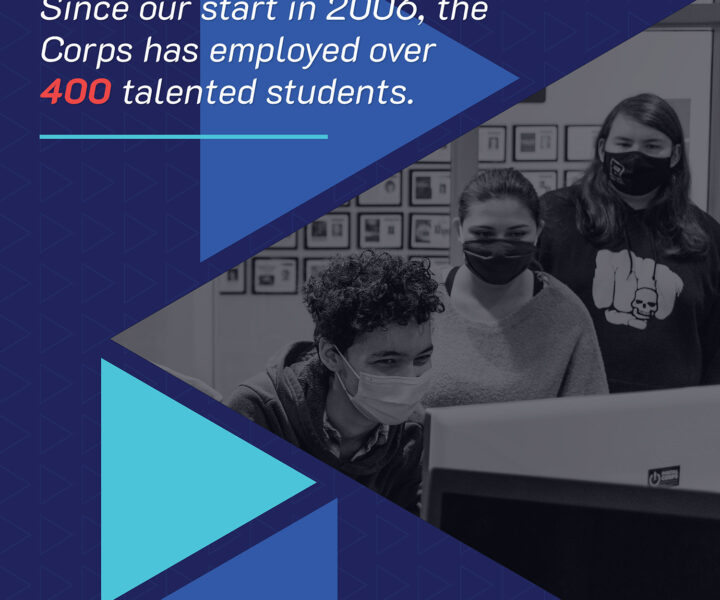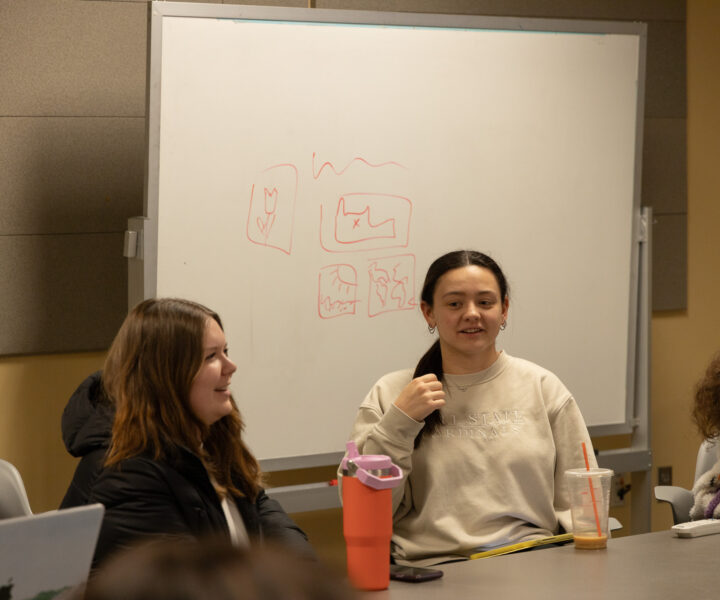If someone told you they love to do art, you might assume that they’re handy with a paintbrush or pencil. It may never occur to you that their medium isn’t a sketchpad or canvas, but actually, coding.
Here at the Digital Corps, our Development Team is responsible for turning content into websites and applications through software and database development. On the surface, the role of the Dev Team may seem strictly technical, but upon a closer look, you’ll find it’s much more than meets the eye.

Getting Into Computer Science

“I always messed with technology and stuff as a kid,” Development Specialist, Joah De Vries said, “I was the one that my parents would go to and be like ‘the wifi’s not working, fix it!’ you know.”
De Vries says part of why he’s enjoyed computer science for all these years is “that satisfying feeling” that comes with finding the solution to a problem he’s been working on for a while. “Just watching it work and having the issue gone, makes me kind of proud.”

While some of the Dev Team have always known they had a knack for computer science, others got their start a bit later. Development Apprentice, Karim Mahfouz, says he switched majors three times before settling on computer science. It was just last year when Mahfouz realized that what he really wanted to do was make games. He has found that software development is an ideal bridge between his passion for video games and his passion for mental health.
“I feel like games offer people an escape that nothing else can emulate. Games have helped me a lot because sometimes you need to step away from your problems before solving them.”
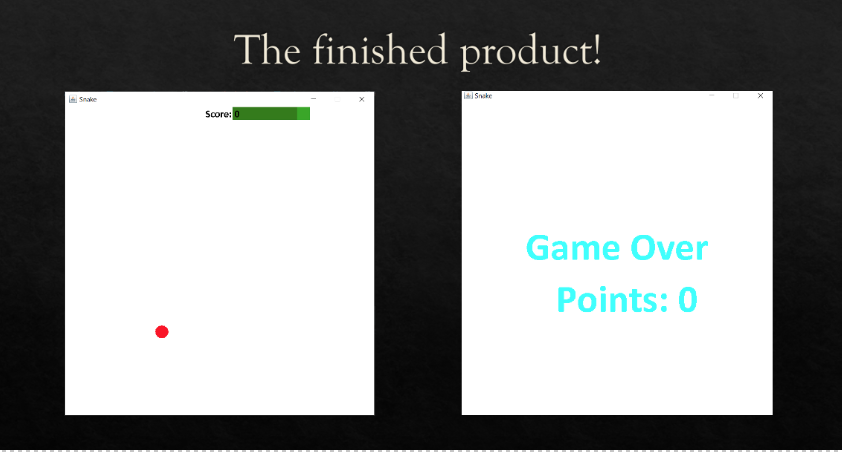
On the Development Team, you’ll find that a lot of its members have been drawn to computer science for the same reasons as Mahfouz: its ability to combine their passions into one medium.

“I did choir and theatre all of high school,” Development Apprentice, Peyton Schaefer says, “But, I was a lot better at the math and science stuff. So, computer science is the middle of that for me. It’s being creative through math and science.”
Schaefer really enjoys that in computer science, he has the ability to be creative enough to come up with an idea, then can use the technical skills to make it happen.

Misconceptions
“I think people are very much in their right to be confused about what we do,” Drew Heiss, Development Apprentice admits, “because it is confusing, even to me most times.”
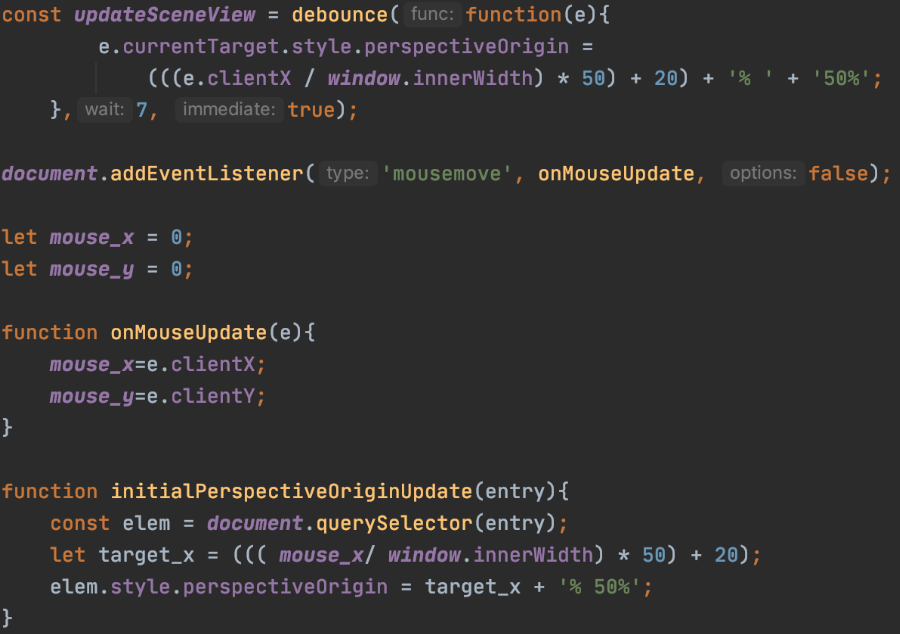
The jumble of code we tend to associate with computer science is quite literally one of a different language. So, it’s no wonder we often chalk the profession up to something we will never understand, and resort
to accepting the little we do know about it as the full story. Or, what we think we know, at least.
“They always associate it with IT, like the guy who fixes your computer,” Schaefer says, “sure, there is that part of it, and you can do that, but…that’s not what I do, and that’s especially not what we do here.”
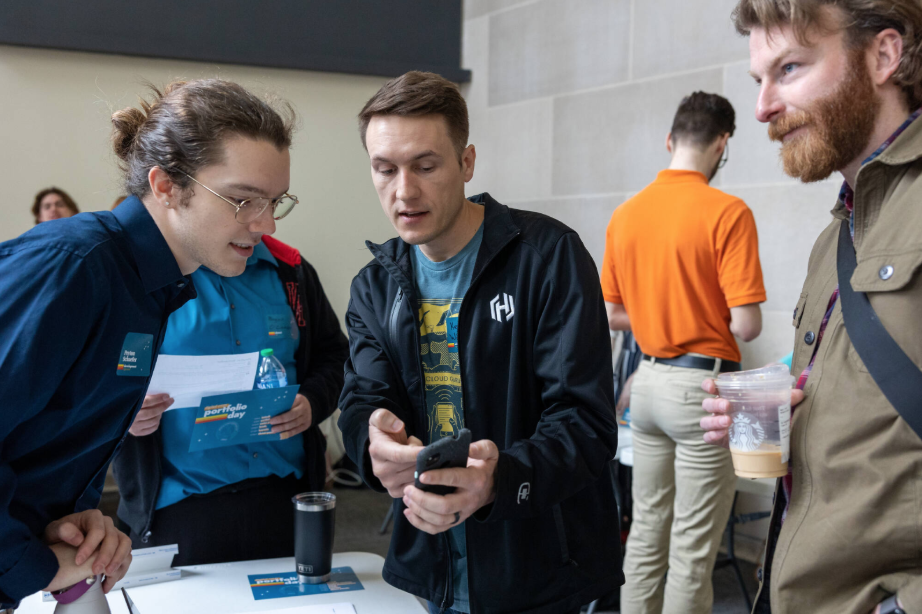
Schaefer explains that here at the Digital Corps, the Development Team is far from our IT crew.
“We make stuff,” he says, which is something he thinks the general public doesn’t really realize.
“I find a lot that because I’m a computer science major, people think I know everything about computers,” De Vries says, and most of the Development Team seems to agree with this sentiment. “So, if they have an issue with their [computer], they automatically assume I can fix it, when that’s not always the case because it might be something completely out of the realm of what I’ve done. That happens a lot.”
There’s a difference between being in IT and being a developer; a difference many people tend to glaze over. Those in information technology are often the ones working on and fixing your computer, while software developers (who the Dev Team really are) are the ones making the website and applications you use on your computer (or iPhone, or gaming console…you get the picture).

The Art of it All
If you were asked to compile a list of every form art takes, what comes to mind might be hanging in a museum or playing at a concert; it’s quite unlikely that coding would find itself anywhere on your list. Yet, when you think about it, is it really so different?
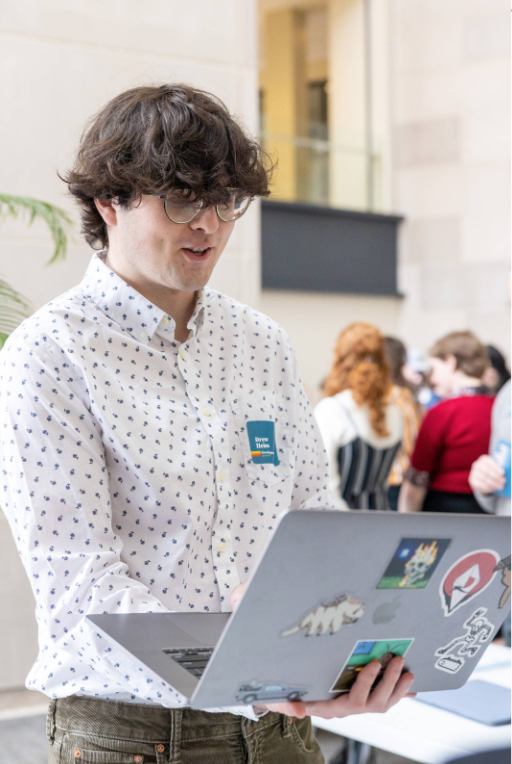
“You’re given tools and you make stuff with it, same exact thing like you draw, you’re given a pencil and
you make something,” Heiss says.
And much like how illustrators differentiate themselves through their unique style, coders do the same.
“You notice a style that somebody has if you read their code. So it’s almost like a signature,” Schaefer explains.
”You can look at code, and you can go like ‘this is ugly, this is messy code.’ But you can look at other code, and it’s really clean and clever…And I would call that art,” Mahfouz goes on to say.
And while it’s not always super pretty, De Vries thinks that “if someone really puts time and passion into it, it very much can be [art],”
So, while we still might not find any of the Dev Team’s codes hanging up in a museum anytime soon, the work they do goes far beyond the technical mechanics we’ll never understand. At the end of the day, the Dev Team is making art just the way the Design Team is, even if the output isn’t quite the same. The Dev Team is fueling their passion into something they can create and putting it out into the world. And that is something I think we all can understand.
